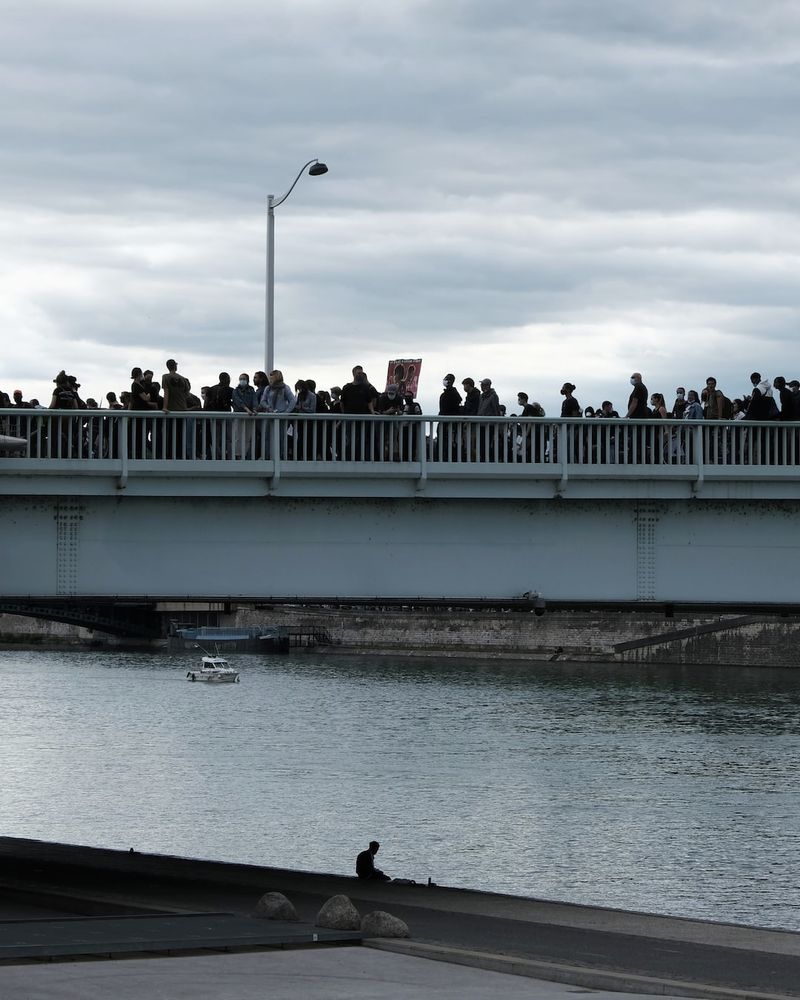Table of Contents
Tunisia: No Safe Haven for Black African Migrants, Refugees
Security Forces Abuse Migrants; EU Should Suspend Migration Control Support
July 19, 2023
By
The treatment of Black African migrants, refugees, and asylum seekers in Tunisia has come under scrutiny as reports emerge about serious abuses committed by Tunisian security forces. Human Rights Watch has documented cases of beatings, use of excessive force, torture, arbitrary arrests and detention, collective expulsions, dangerous actions at sea, forced evictions, and theft against this vulnerable population. These human rights violations occur despite the European Union (EU) providing significant financial support to Tunisia‘s migration control efforts. The EU should suspend funding to Tunisian security forces and set clear human rights benchmarks for any future support.
Abuses Against Migrants in Tunisia
According to Human Rights Watch, the Tunisian police, military, and national guard, including the coast guard, have abused Black African migrants, refugees, and asylum seekers. These abuses have created a climate of fear and hostility towards Black Africans in Tunisia and have led to racist and xenophobic attitudes. Despite these documented abuses, the EU recently signed a Memorandum of Understanding (MoU) with Tunisia on a new “strategic partnership” and allocated €1 billion in funding, including €105 million for “border management, search and rescue, anti-smuggling, and return.” The MoU lacks serious guarantees that Tunisian authorities will prevent human rights violations and that EU support will not reach entities responsible for abuses.
EU Support and Its Implications
The EU has already dedicated significant funding to Tunisia for migration control, including equipping and training security forces. The EU member states should withhold their support for migration and border management under the MoU until a thorough human rights impact assessment is carried out. The EU’s approach to migration challenges must be fundamentally reoriented. Border control should not come at the expense of trampling human rights and neglecting international protection responsibilities. The EU should ensure that its financial support to Tunisia does not exacerbate human rights abuses and instead prioritize the well-being and protection of migrants, refugees, and asylum seekers.
Migration Context in Tunisia
Tunisia serves as a country of origin, destination, and transit for migrants, refugees, and asylum seekers. It has become a significant departure point for boats headed to Europe, surpassing Libya in the first half of 2023. The most common countries of origin for those arriving in Italy from Tunisia include Côte d’Ivoire, Egypt, Guinea, Pakistan, Bangladesh, Tunisia, Syria, Burkina Faso, Cameroon, and Mali. The country has faced economic challenges, repression, and xenophobic violence, contributing to an increase in boat departures and deaths at sea. Tunisia has no national asylum law or system but is a party to international refugee conventions.
Recommendations
The European Parliament should limit the discretionary use of the “safe third country” concept by EU member states and establish clear criteria for designating a country as “safe.” Tunisia does not meet the EU’s criteria for a safe third country due to documented abuses and xenophobic attacks against Black Africans. The EU and member states should suspend funding and other support to Tunisian security forces for migration control until clear human rights benchmarks are met. The Tunisian government should investigate reported abuses, hold perpetrators accountable, and implement reforms to ensure respect for human rights and end racial discrimination and violence.
is a commentator specializing in current affairs. He closely follows human rights issues and provides analysis and commentary on global events.

<< photo by Alexis Fauvet >>
The image is for illustrative purposes only and does not depict the actual situation.
You might want to read !
- Crackdown in Cambodia: Suppression of Opposition Activists Sparks Concerns
- Why Caster Semenya’s Legal Victory Falls Short in Her Fight to Compete
- Peru: Protecting Democracy and Human Rights – President Boluarte’s Call for Security Forces
- Insights into the Philippines’ ICC Affirmation: An Assessment of the Prosecutor’s Inquiry
- Liberating Wheels: Advocating for Women’s Freedom of Movement in the Middle East and North Africa
- EU/Tunisia Migration Agreement: A Controversial Pact That Raises Questions on EU’s Responsibility in Human Rights Abuses
- The Crucial Imperative: Putting Human Rights at the Forefront of the EU-CELAC Summit
- EU Lawmakers Demand Action on Rights Decline in Tunisia as Commission Remains Inactive
- Malaysia’s Dark Reality: The Abduction of a Myanmar Refugee Activist
- Russia’s Controversial Legislation: How Trans Health Care and Families Bill Raises Concerns About Human Rights
- Strengthening Global Action to Combat Rights Abuses in Nicaragua
- The ICC Affirms Inquiry into Philippines’ Human Rights Violations
- Without resources, can there truly be rights?
- “An Empowering Milestone: Japan’s Supreme Court Protects Transgender Rights in the Workplace”
- Ensuring Adequate Nutrition for Pregnancy and Breastfeeding: Sri Lanka’s Government must take action
- Russia’s Adoption of Transphobic Legislation: A Harrowing Blow to Human Rights